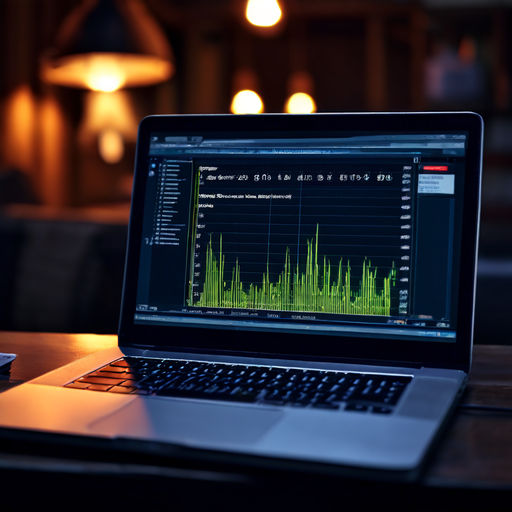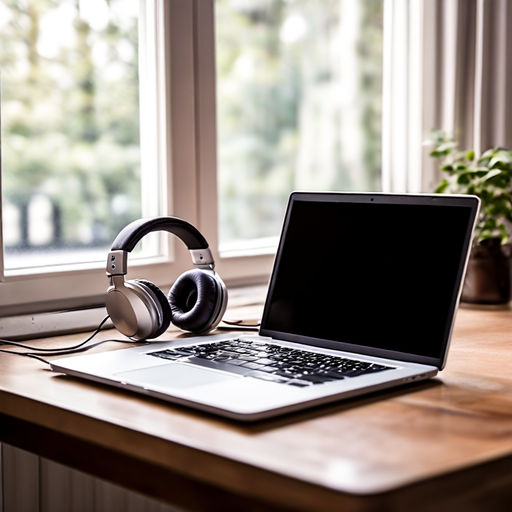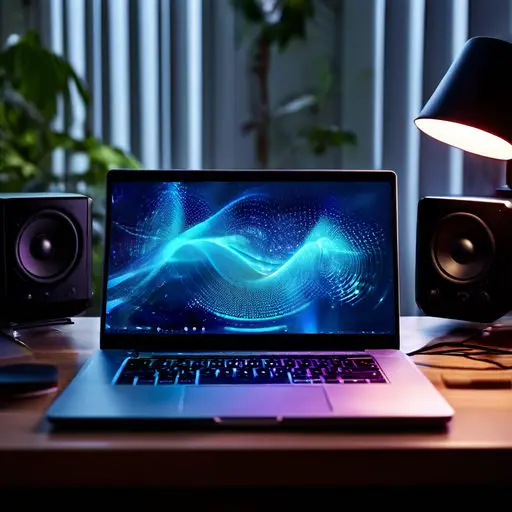How to Increase Laptop Sound
In today’s digital age, laptops have become an integral part of our lives. Whether it’s for work, entertainment, or communication, these portable devices are our constant companions. However, one common issue many users face is the inadequate sound output from their laptops. If you’ve ever struggled to hear your favorite music, the dialogue in a movie, or the other person on a video call, you’re not alone. Fortunately, there are several effective ways to boost your laptop’s sound. In this blog post, we’ll explore five tips and tricks to increase laptop sound and enhance your overall audio experience.
1. Check and Update Audio Drivers
The first step in addressing any sound-related issue on your laptop is to check and update your audio drivers. Drivers are essential software components that allow your operating system to communicate with your hardware. Outdated or corrupted drivers can significantly impact sound quality and volume.
How to Update Audio Drivers:
- Identify Your Audio Device:
- Open the Device Manager by pressing
Windows + Xand selecting “Device Manager.” - Expand the “Sound, video, and game controllers” section.
- Note the name of your audio device (e.g., Realtek High Definition Audio).
- Open the Device Manager by pressing
- Download the Latest Drivers:
- Visit the manufacturer’s website (e.g., Realtek, Intel, or your laptop manufacturer’s site).
- Locate the latest drivers for your specific audio device and operating system.
- Download and install the drivers, following the on-screen instructions.
- Restart Your Laptop:
- After the installation is complete, restart your laptop to apply the changes.
Updating your audio drivers can often resolve sound issues and improve overall audio performance.
2. Adjust Sound Settings

Sometimes, the default sound settings on your laptop may not be optimized for maximum volume output. Adjusting these settings can make a significant difference.
Steps to Adjust Sound Settings:
- Open Sound Settings:
- Right-click the speaker icon in the system tray (bottom-right corner of the screen).
- Select “Open Sound settings.”
- Increase the Volume:
- Ensure the volume slider is set to the maximum level.
- Enhance Audio Output:
- Click on “Device properties” under the Output section.
- In the new window, select the “Enhancements” tab.
- Check the box for “Loudness Equalization” to normalize the sound levels.
- Advanced Sound Settings:
- Click on “Additional device properties.”
- Navigate to the “Advanced” tab and select the highest sample rate and bit depth available.
Adjusting these settings can help you achieve a louder and clearer sound output from your laptop.
3. Use Third-Party Software
If updating drivers and adjusting settings doesn’t yield the desired results, you can turn to third-party software designed to boost your laptop’s sound. These programs can enhance audio performance by providing additional control over sound settings and amplifying volume beyond the default limits.
Recommended Third-Party Software:
- VLC Media Player:
- VLC is a versatile media player that comes with a built-in audio booster.
- Open VLC and play your media file.
- Click on “Tools” in the menu bar and select “Effects and Filters.”
- In the “Audio Effects” tab, check the box for “Enable” and increase the “Preamp” slider to boost the volume.
- Boom 3D:
- Boom 3D is a popular sound enhancement software that offers a range of features, including a 3D surround sound option.
- Download and install Boom 3D from the official website.
- Use the built-in equalizer and volume booster to enhance your laptop’s sound output.
- Equalizer APO:
- Equalizer APO is a powerful, open-source audio equalizer that allows for extensive sound customization.
- Download and install Equalizer APO.
- Configure the settings to amplify sound and improve audio quality.
Using third-party software can significantly enhance your laptop’s sound capabilities, providing a richer and louder audio experience.
how to program a car computer with a laptop.
HP vs Samsung Laptop
4. Utilize External Speakers or Headphones

While tweaking settings and using software can improve your laptop’s sound, sometimes the best solution is to use external audio devices. High-quality speakers or headphones can provide superior sound quality and volume compared to built-in laptop speakers.
Tips for Choosing External Audio Devices:
- External Speakers:
- Look for portable, high-quality speakers that offer good bass and clear sound.
- Consider Bluetooth speakers for wireless convenience or USB-powered speakers for easy connectivity.
- Headphones:
- Invest in a good pair of over-ear or in-ear headphones.
- Noise-canceling headphones can provide an immersive audio experience by blocking out external noise.
- Soundbars:
- A soundbar can be an excellent addition to your setup, especially if you use your laptop for media consumption.
- Choose a soundbar with a built-in subwoofer for enhanced bass and overall sound quality.
Connecting external audio devices can drastically improve your audio experience, making it easier to enjoy music, movies, and video calls.
5. Clean and Maintain Your Laptop
Dust and debris can accumulate in your laptop’s speakers over time, potentially reducing sound quality and volume. Regular cleaning and maintenance can help ensure optimal audio performance.
Steps to Clean Your Laptop Speakers:
- Power Off Your Laptop:
- Turn off your laptop and unplug it from any power source.
- Clean the Speaker Grills:
- Use a soft brush or a can of compressed air to gently clean the speaker grills.
- Be careful not to apply too much pressure, as this can damage the speakers.
- Use a Cleaning Solution:
- Dampen a microfiber cloth with a small amount of isopropyl alcohol.
- Gently wipe around the speaker grills to remove any remaining dirt or grime.
- Regular Maintenance:
- Keep your laptop in a clean environment to minimize dust accumulation.
- Avoid eating or drinking near your laptop to prevent spills and crumbs from getting into the speakers.
Regular cleaning and maintenance can help maintain your laptop’s sound quality and extend the lifespan of its speakers.
Additional Tips for Optimal Sound Experience
Aside from the primary tips mentioned above, there are a few more tricks you can use to ensure you’re getting the best sound out of your laptop.
6. Check for Obstructions
It’s easy to overlook, but sometimes physical obstructions can block your laptop’s speakers, reducing sound quality and volume.
- Clear the Area Around Your Laptop:
- Make sure no objects are blocking the speaker grills.
- Position your laptop on a hard, flat surface to allow sound to project freely.
- Avoid Placing Items on the Keyboard:
- Items placed on the keyboard can cover the speakers (if they are positioned near the keyboard), muffling the sound.
- Laptop Stand:
- Using a laptop stand can elevate the device, helping to improve airflow and sound projection.
7. Use a Digital-to-Analog Converter (DAC)
If you’re an audiophile or someone who values high-quality sound, investing in an external DAC can make a noticeable difference. A DAC converts digital audio signals into analog signals, resulting in clearer and more accurate sound reproduction.
- Select a Compatible DAC:
- Ensure the DAC you choose is compatible with your laptop’s operating system and has the necessary ports (USB or Thunderbolt).
- Installation and Usage:
- Connect the DAC to your laptop and install any required drivers.
- Use high-quality headphones or external speakers to enjoy enhanced audio.
Frequently Asked Questions (FAQs)
Q1: Why is my laptop sound so low even at maximum volume?
There can be several reasons for low sound on a laptop even at maximum volume:
- Outdated or Corrupted Drivers: Ensure your audio drivers are up-to-date.
- Sound Settings: Check if any sound enhancements or equalizer settings are limiting the volume.
- Hardware Limitations: Some laptop models have inherently low-powered speakers.
- Obstructions: Physical blockages can muffle sound; ensure the speakers are unobstructed.
- Third-Party Software: Consider using audio enhancement software to boost the volume.
Q2: Can external software damage my laptop speakers?
Using external software to boost sound levels beyond the manufacturer’s specifications can potentially damage your laptop speakers if used excessively. It’s important to use such software judiciously and avoid pushing the volume to the maximum for extended periods. Always start with moderate enhancements and gradually increase to find a safe level that doesn’t distort the sound or strain the speakers.
Q3: Are USB speakers better than Bluetooth speakers for laptops?
Both USB and Bluetooth speakers have their advantages:
- USB Speakers:
- Typically offer better sound quality due to a stable wired connection.
- Easy to set up; just plug and play.
- No need for battery charging.
- Bluetooth Speakers:
- Offer wireless convenience, making them portable and flexible.
- Can connect to multiple devices.
- Modern Bluetooth speakers also provide excellent sound quality, though they depend on battery life.
Your choice depends on your specific needs for portability, sound quality, and convenience.
Q4: How often should I clean my laptop speakers?
Regular maintenance can prevent sound issues:
- Light Cleaning: Dust the speakers with a soft brush or compressed air every few weeks.
- Deep Cleaning: Perform a more thorough cleaning with isopropyl alcohol and a microfiber cloth every 3-6 months, depending on your environment.
Keeping your laptop in a clean area can reduce the frequency of deep cleaning.
Q5: Will a laptop cooling pad affect sound quality?
A cooling pad can indirectly affect sound quality by preventing overheating, which can strain internal components, including the audio system. However, cooling pads themselves do not directly enhance or degrade sound quality. Ensure the cooling pad doesn’t block or cover the speakers.
Conclusion
Improving your laptop’s sound quality and volume involves a combination of software adjustments, hardware enhancements, and regular maintenance. By following the tips and tricks outlined in this post, you can significantly enhance your audio experience.
Start by updating your audio drivers and adjusting the sound settings. If these steps are not sufficient, consider using third-party software to boost the volume or invest in external audio devices like speakers, headphones, or a DAC. Regular cleaning and avoiding obstructions can also play a crucial role in maintaining optimal sound quality.
Whether you’re watching a movie, listening to music, or on a video call, better sound quality can greatly enhance your overall experience. With these tips and tricks, you can transform your laptop into a powerful audio device, delivering rich and immersive sound.
Thank you for reading the blog post, I hope after reading the blogpost you can increase the sound and sound quality.


